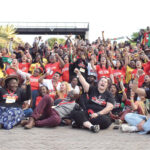The 2025 General Elections in Malawi have ushered in a notable shift in the political landscape: a marked increase in independent candidates contesting parliamentary and local government seats.
This phenomenon, while not entirely unprecedented, signals a complex evolution in the country’s democratic journey, one that invites both optimism and caution.
At its core, the surge in independents reflects a growing disenchantment with traditional party politics and a yearning among citizens for more direct representation unencumbered by party ideologies or internal power struggles.
Yet it also raises critical questions about the stability, coherence and accountability of Malawi’s democratic institutions.
Historically, Malawi’s political system has been dominated by a handful of major parties, most notably the Malawi Congress Party, the Democratic Progressive Party and the United Democratic Front.
These parties have shaped the post-1994 multiparty era, offering structured platforms for political engagement.
However, over the years, internal factionalism, patronage politics and a perceived disconnect from grassroots concerns have eroded public trust.
The emergence of independent candidates in 2025 can be seen as a direct response to this erosion.
Many aspirants, frustrated by opaque nomination processes and exclusionary party dynamics, chose to run without party backing, believing that their personal credibility and community ties would resonate more with voters than party affiliation.
This trend is not unique to Malawi. Across the Southern African region, similar patterns have emerged.
In Zambia, for instance, the 2021 elections saw a rise in independents, particularly at the local government level, as citizens sought alternatives to entrenched party structures.
In South Africa, independent candidates have gained traction in municipal elections, challenging the dominance of the African National Congress and the Democratic Alliance.
These developments suggest a regional shift toward more personalised, localised politics, where voters prioritise individual integrity and service delivery over party loyalty.
In Malawi, the implications of this shift are multifaceted. On one hand, the proliferation of independents could invigorate democracy by diversifying representation and reducing the monopoly of party elites.
It allows for more nuanced voices in Parliament and councils, potentially leading to more responsive governance.
On the other hand, it risks fragmenting the legislative process, making consensus-building more difficult.
Without the discipline and policy coherence that parties often provide, independents may struggle to advance substantive legislative agendas or hold the executive accountable.
Moreover, the post-election behaviour of some independents has sparked controversy.
Reports indicate that several newly elected independents have already defected to established political parties, raising ethical and democratic concerns.
While Malawi’s Constitution does not prohibit such defections, the practice undermines the spirit of independent candidacy.
Voters who elected these individuals based on their non-partisan stance may feel betrayed as their mandate is effectively co-opted by party interests.
This raises a fundamental question: should there be legal or institutional safeguards to preserve the integrity of independent representation?
The answer lies in a balanced approach.
First, Malawi could consider introducing legislation that restricts post-election party defections within a defined period, similar to anti-defection laws in countries such as India.
Such laws aim to uphold the sanctity of the voter’s choice and prevent opportunistic political manoeuvring.
Second, civic education must be intensified to help voters understand the implications of electing independents and to hold them accountable beyond the ballot box.
Third, political parties must introspect and reform their internal processes to become more inclusive, transparent and responsive, thereby reducing the incentive for credible candidates to run independently.
Ultimately, the rise of independent candidates in Malawi’s 2025 elections is both a symptom and a signal.
It reflects deep-seated frustrations with party politics but also a resilient democratic spirit among citizens who seek genuine representation.
Whether this trend strengthens or weakens Malawi’s democracy will depend on how institutions, parties and voters respond.
If managed wisely, it could lead to a more pluralistic and participatory political culture. If left unchecked, it risks deepening fragmentation and eroding public trust.
The crossroads is clear; the direction must be chosen with foresight and integrity.
The author is a governance, elections, human rights and civic education specialist








